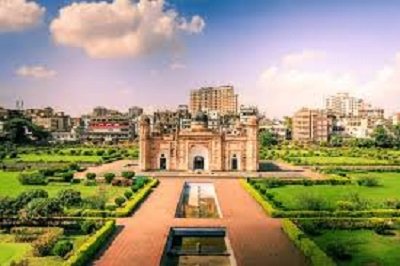
SPECIAL-REPORT : As Bangladesh steps into 2024, the country finds itself at a critical juncture, grappling with a complex web of challenges while eyeing opportunities for growth and development. The nation’s economic, political, and social landscape is marked by both strides forward and pressing concerns, which together paint a nuanced picture of its present situation.
Economic Landscape: Growth Amidst Global Uncertainty
Bangladesh’s economy has been one of the fastest-growing in the world over the past decade, driven by robust performance in sectors like ready-made garments (RMG), agriculture, and remittances. However, the global economic environment has become increasingly challenging, with inflationary pressures, fluctuating energy prices, and disruptions in global trade impacting the country.

The RMG sector, which accounts for more than 80% of the country’s exports, faces significant challenges due to declining demand from key markets like Europe and the United States. Additionally, competition from countries like Vietnam and Cambodia is intensifying. Despite these hurdles, Bangladesh has managed to maintain a steady growth rate, thanks in part to the diversification of its export basket and efforts to move up the value chain in garment manufacturing.
Inflation remains a significant concern, with food prices soaring due to global supply chain disruptions and domestic production challenges. The government has implemented various measures to control inflation, including subsidies and price controls, but these have had limited success in alleviating the burden on the poor and middle-class populations. The rural economy, heavily reliant on agriculture, has been hit hard by erratic weather patterns, further exacerbating the situation.

Political Climate: A Nation on the Brink of Change
Bangladesh’s political climate in 2024 is marked by increasing polarization and uncertainty. The country is gearing up for general elections, scheduled to be held later in the year. The ruling Awami League, led by Prime Minister Sheikh Hasina, is seeking to secure another term, but faces strong opposition from the Bangladesh Nationalist Party (BNP) and other smaller parties.
Political tensions have been rising, with allegations of corruption, human rights abuses, and electoral fraud dominating the discourse. The government’s crackdown on dissent, including the arrest of opposition leaders and activists, has drawn criticism from international human rights organizations and Western governments.

The BNP has accused the Awami League of using state machinery to suppress opposition, while the ruling party claims that the opposition is trying to destabilize the country through violence and misinformation.
The upcoming elections are seen as a critical test for Bangladesh’s democracy. Observers are concerned about the potential for violence and unrest, especially if the electoral process is perceived as unfair or rigged. The international community, including the United Nations and the European Union, has called for free, fair, and transparent elections, urging all parties to engage in dialogue and refrain from violence.

Social Issues: Striving for Equity and Justice
Bangladesh’s social fabric is being tested by a range of issues, from rising inequality to gender-based violence. The country has made significant progress in improving health and education outcomes, but these gains are unevenly distributed, with rural and marginalized communities often left behind.
Inequality remains a significant challenge, with the gap between the rich and poor widening. While urban areas have seen rapid development and modernization, rural regions continue to struggle with inadequate infrastructure, lack of access to quality healthcare, and limited economic opportunities. The government has launched various social safety net programs to address these disparities, but implementation has been uneven, and corruption remains a persistent problem.
Gender-based violence is another critical issue facing the country. Despite legal reforms and increased awareness, incidents of violence against women and girls remain alarmingly high. Child marriage, although declining, is still prevalent in many parts of the country. Activists have called for stronger enforcement of laws and more comprehensive support systems for survivors of violence.
Bangladesh is also grappling with the challenges posed by the Rohingya refugee crisis. The country is hosting over a million Rohingya refugees who fled persecution in Myanmar. While Bangladesh has been praised for its humanitarian response, the situation in the refugee camps is dire, with overcrowding, inadequate access to basic services, and rising tensions between refugees and host communities. The government has been advocating for the safe and voluntary repatriation of the Rohingya to Myanmar, but progress on this front has been slow.
Environmental Concerns: Battling the Forces of Nature
Bangladesh is one of the most vulnerable countries in the world to climate change. Rising sea levels, increased frequency of natural disasters, and changing weather patterns are already having a profound impact on the country. Coastal regions are particularly at risk, with millions of people facing the threat of displacement due to rising waters.
The government has been proactive in implementing climate adaptation and mitigation strategies, including building resilient infrastructure, promoting sustainable agricultural practices, and investing in renewable energy. However, the scale of the challenge is immense, and Bangladesh continues to require substantial international support to effectively combat the impacts of climate change.
In 2024, the country is also facing a water crisis, with dwindling freshwater resources and increasing pollution of rivers and groundwater. The government has launched various initiatives to address water scarcity, including the construction of desalination plants and the promotion of rainwater harvesting, but these efforts have yet to yield significant results.

Looking Ahead: Balancing Challenges and Opportunities
As Bangladesh navigates the challenges of 2024, the resilience and determination of its people remain a source of strength. The country’s young and dynamic population, coupled with its strategic location and growing economy, positions it well to capitalize on emerging opportunities. However, addressing the underlying challenges of political instability, social inequality, and environmental vulnerability will be crucial for ensuring sustainable and inclusive development.
The road ahead is fraught with challenges, but with effective leadership, sound policies, and a commitment to justice and equity, Bangladesh has the potential to continue its journey toward prosperity and stability. The international community also has a vital role to play in supporting Bangladesh as it faces these multifaceted challenges, ensuring that the progress made over the past decades is not undone.








